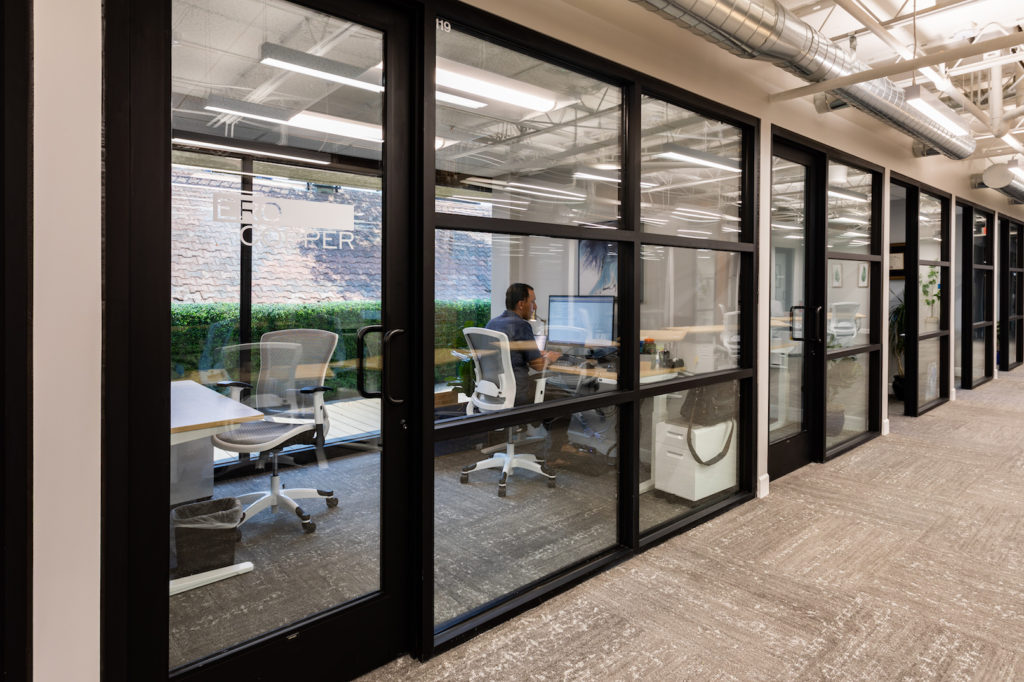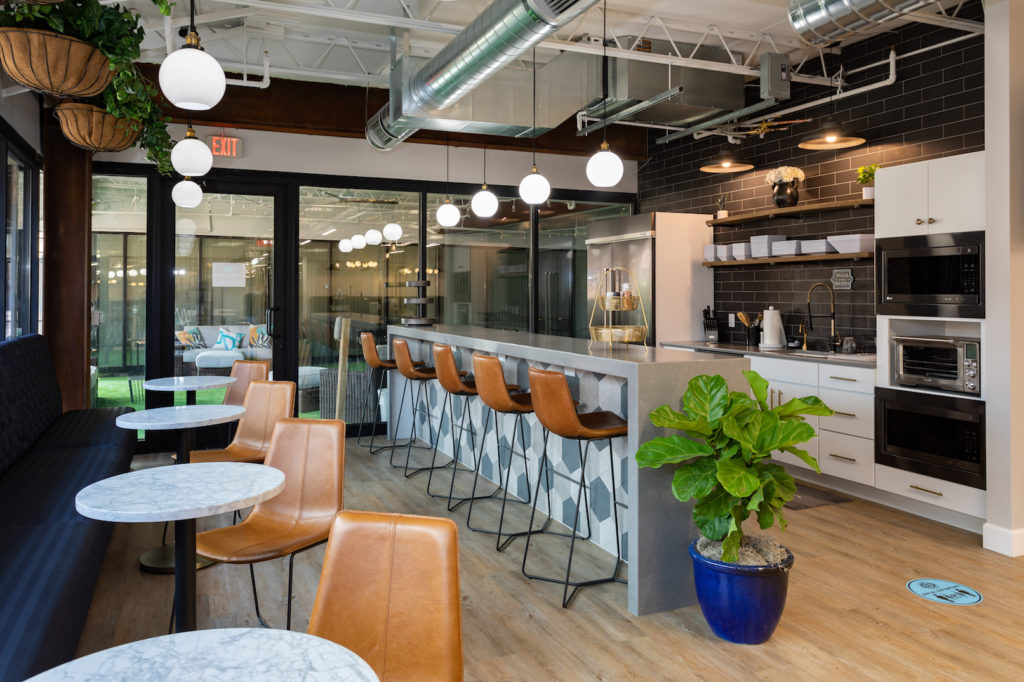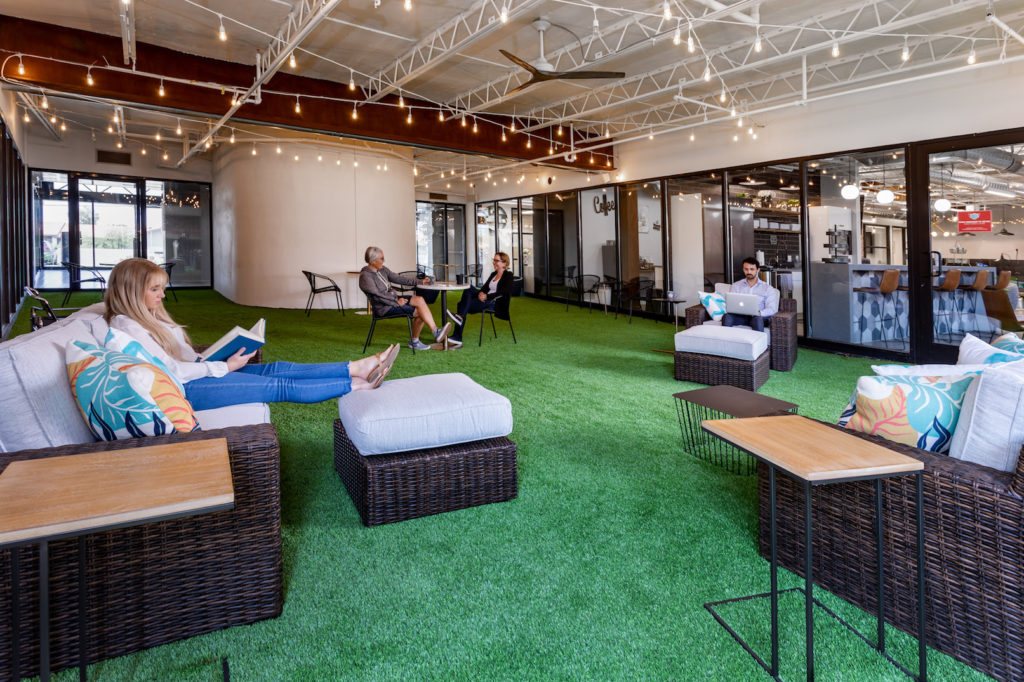
It’s no secret: coworking has been a growing industry for a long time. Way back in 2016, industry predictions anticipated there would be over 1 million people coworking in 2017. Today, that number is more than 3 million.
Coworking also accounted for 2% of office space around the globe last year, even before the pandemic– that’s double what it was in 2017.
What’s more? Despite the pandemic, many markets globally have shown increased demand for flexible workspace, and on shorter terms–so much so that The Instant Group forecasts flexible workspace supply growth of over 21% in 2021.
These facts all point to one thing: coworking is no longer a trend. It’s the future of office space.
Here’s why.
1. Organizations Have Realized They Don’t Need a Huge Office
Before the pandemic hit, lots of organizations shied away from allowing employees to work from home.
In many cases, this is because it would’ve been a massive undertaking to implement. In other cases, it’s because they simply didn’t think it would be effective.
But with COVID-19 having forced many organizations to send employees home, and recent studies showing that those who work from home are 47% more productive, suddenly it’s become a viable option.
Now, a ton of massive organizations, including Twitter and Square, have started allowing permanent work-from-home. And many others are allowing it at least part-time.
As a result, many businesses are starting to realize that having a huge office in which to host their entire workforce seems inefficient and unnecessary.
So, it’s a safe bet that there will be a ton of organizations looking for new workspace options for their employees.
2. Coworking Offers Big Cost Savings

Now that remote work is on the rise, one of the biggest benefits of moving away from a traditional office comes in the form of cost savings.
If you don’t need an office to host a full team, or if you simply don’t need office space at all anymore, there are huge overhead costs to be saved.
After all, why would a business shell out hundreds of dollars per square foot for an office it doesn’t need?
Coworking presents a perfect cost-conscious alternative to traditional office space.
It allows organizations to have dedicated workstations or private offices for their remote employees or satellite teams at a fraction of the cost of traditional office space. And it provides workers with all the technology, tools, and support they need to do their jobs effectively and efficiently–things they might lack when working from home.
So, whether organizations want to do shift-work where certain staff is in-office a few days a week, or they want to go fully remote but still offer employees a place where they can go to have meetings or spend time together, coworking is going to become the go-to option. It offers organizations flexible options for their remote workers.
For more on this, check out this article we wrote: The Cost of Coworking is Way Cheaper Than a Traditional Office. Here’s Why.
3. Traditional Leases Will Become Obsolete
Cost isn’t the only factor that organizations will be considering going forward. They’ll also be looking at whether traditional long-term office leases still make sense.
And you can bet they won’t have any interest in taking them on.
After all, how many companies had a five or 10-year commercial office lease to maintain, even when the COVID-19 pandemic had those office spaces sitting empty for a year?
Coworking spaces allow for extremely flexible membership options that don’t require organizations to sign their souls away on high-priced multi-year leases.
4. People Will Always Crave Human Interaction

While it might be good for businesses to cut costs and have people work remotely, the reality is that human beings are social creatures.
We crave human interaction.
And while working from home can be great sometimes, that won’t fly forever.
People thrive on being together. They want to be part of a community. And coworking spaces offer that: they’re a melting pot of professionals from all different industries with a diverse array of expertise.
And they’re also incredibly social. It’s common to find strong personal bonds being built between fellow coworking members.
Plus, getting out of your home office regularly provides big benefits. Curious? Check out our article: The 6 Biggest Benefits of Escaping Your Home Office Each Week.
When you examine the facts, trends, and data, all signs point to massive growth for the coworking industry its position as the future of office space.
Want to learn more about coworking and flexible office space and if it makes sense for your business? Get in touch today.
